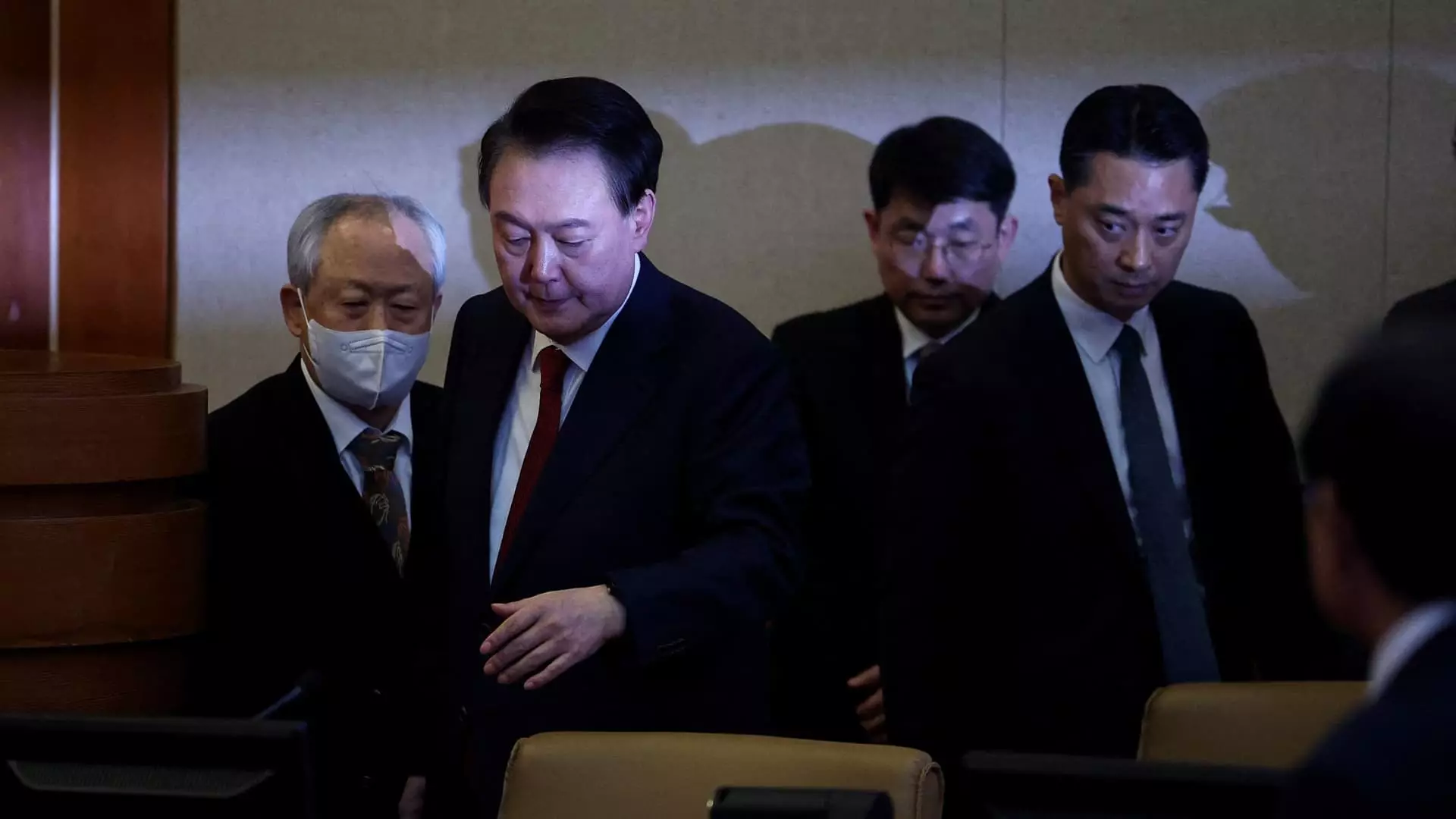In a landmark decision, South Korea’s Constitutional Court officially removed President Yoon Suk Yeol from office, an act that feels like a seismic shift in the nation’s political landscape. This ruling is not just a mere judicial formality; it embodies the public’s demand for accountability in governance, especially in a society that holds democratic ideals close to its heart. The unanimous decision underscores the gravity of Yoon’s violations, particularly concerning his controversial declaration of martial law. This marks a significant moment in South Korea’s democratic history, where legal checks are proving capable of curtailing executive overreach.
Martial Law: A Dangerous Precedent
Yoon’s reckless imposition of martial law on December 3, framed under the guise of protecting the nation from alleged “North Korean communist forces,” raises serious questions about his judgment and commitment to democratic principles. For over 40 years, martial law has been a relic of South Korea’s military dictatorship era. The return to such a draconian measure sends shivers down the spine of a populace that fought hard for their freedoms. This unprecedented move showcases not only a misguided approach to governance but also a blatant disregard for constitutional principles, which the Constitutional Court has emphatically rejected.
The actions leading to Yoon’s impeachment reflect a troubling inclination toward authoritarianism—a trend that, if left unchecked, could retrogress South Korea’s hard-won progress towards achieving a robust democracy. The fact that it took mere hours for parliament to vacate his martial law decree emphasizes a collective resolve among lawmakers to challenge any inclination towards tyranny. Activism in the legislature has proven once again to be a formidable force for good, reminding us that oversight is a cornerstone of power.
Market Reactions: A Mixed Bag
Following the court’s decision, the South Korean financial markets expressed mixed reactions. The Kospi index experienced a modest decline of 0.59%, indicating that the business sector is wary of political instability. However, the Kosdaq saw a rise of 0.74%, a reflection of potential optimism among smaller companies that could benefit from a change in leadership. Likewise, the South Korean won strengthened, hinting at restored investor confidence following the resolution of this political turmoil. This dynamic illustrates how intertwined the country’s economic health is with the stability of its political framework. The election countdown now introduces both uncertainty and opportunity, compelling citizens and entrepreneurs alike to recalibrate their hopes for the future.
The Role of Acting Leadership
In the interim, Prime Minister Han Duck-soo has stepped in as acting president, resonating with a sense of stability that the nation urgently requires. His leadership will inevitably shape the interim governance structure as the countdown to the next presidential elections commences. Citizens have witnessed enough upheaval, and any further drift toward chaos must be avoided at all costs. The restoration of credibility in the office demands that Han focus on addressing pressing national issues and steering the nation towards a brighter future.
The Constitutional Court’s decision against Yoon Suk Yeol is more than a political win; it serves as a powerful reminder of the resolve within South Korea’s democratic institutions to uphold the rule of law. A country governed by its constitution is a society that stands firm against the tides of tyranny.


Leave a Reply